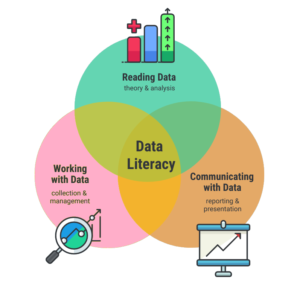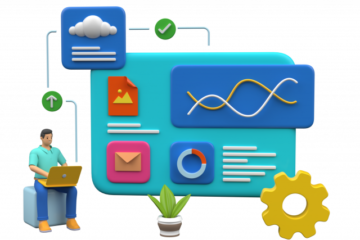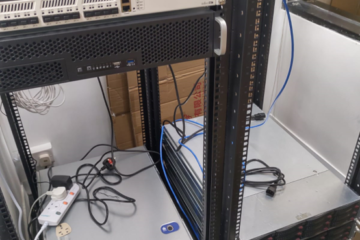Data Literacy: Unlocking the Power of Information in the Digital Age
Introduction:
In today’s digital era, data is being generated at an unprecedented rate. From social media interactions to online transactions, every click and keystroke contributes to a vast pool of information. This surge in data availability has created new opportunities and challenges for individuals and organizations alike. To make sense of this data-driven world, individuals need to possess a crucial skill set known as data literacy. In this article, we will explore the concept of data literacy, its significance, and provide real- englishworld examples to showcase its practical applications.

Understanding Data Literacy:
Data literacy refers to the ability to read, analyze, interpret, and communicate insights derived from data. It encompasses a range of skills, including data collection, data analysis, data visualization, and data-driven decision-making. Data literate individuals possess the knowledge and competence to critically evaluate information, identify patterns, draw meaningful conclusions, and effectively communicate their findings.
Significance of Data Literacy:
1. Informed Decision Making:
Data-driven decision-making has become integral to organizations across industries. Data literate individuals can leverage data to inform their decisions, leading to more informed choices and better outcomes. For example, a marketing manager analyzing customer data can identify patterns in purchasing behavior and tailor marketing strategies accordingly.
2. Improved Problem Solving:
Data literacy empowers individuals to solve complex problems by analyzing relevant data. For instance, a healthcare professional can utilize patient data to identify trends, predict disease outbreaks, and design preventive measures accordingly.
3. Identifying Trends and Opportunities:
Data literacy enables individuals to identify emerging trends and seize opportunities. A financial analyst proficient in data analysis can detect market trends, enabling timely investments and informed financial decisions.
4. Enhanced Communication:
Data literacy allows individuals to effectively communicate insights derived from data. By presenting information in a clear and compelling manner, data literate professionals can influence stakeholders, drive organizational change, and foster data-driven cultures.
Examples of Data Literacy in Practice:
1. Journalism:
Journalists are increasingly required to analyze and interpret data to uncover meaningful stories. Data literacy enables them to scrutinize datasets, identify patterns, and draw accurate conclusions. For instance, investigative journalists analyzing public records and financial data exposed the Panama Papers scandal, revealing offshore financial activities of prominent individuals.
2. Education:
Data literacy plays a crucial role in the education sector. Educators can utilize data to identify student performance trends, track progress, and personalize learning experiences. For example, a teacher analyzing student assessment data can identify areas of weakness and adapt instructional strategies accordingly.
3. Public Health:
Data literacy is vital for public health professionals, especially during global health crises. Epidemiologists analyzing data on infection rates, vaccination coverage, and demographic factors can develop targeted interventions and guide public health policies. The COVID-19 pandemic highlighted the significance of data literacy in tracking the spread of the virus and making informed decisions.
4. Business Analytics:
Data literacy is increasingly sought after in the business world. Professionals proficient in data analysis can derive insights from customer data, market trends, and financial metrics, driving business growth. For instance, e-commerce companies utilize data to optimize user experiences, recommend products, and personalize marketing campaigns.
5. Social Advocacy:
Data literacy can be a powerful tool for social advocacy. Activists and nonprofits can leverage data to support their causes, raise awareness, and influence policy decisions. For example, organizations focused on climate change utilize data to showcase the impact of human activities on the environment and advocate for sustainable practices.
Conclusion:
Data literacy has emerged as a critical skill in the digital age. It empowers individuals to navigate the vast sea of data, make informed decisions, and communicate insights effectively. From journalism to education, public health to business analytics, the applications of data literacy are vast and varied. By fostering data literacy skills, individuals can unlock the power of information, drive innovation, and shape a data-driven future. As data continues to shape our world, developing data literacy has become more crucial than ever before.


